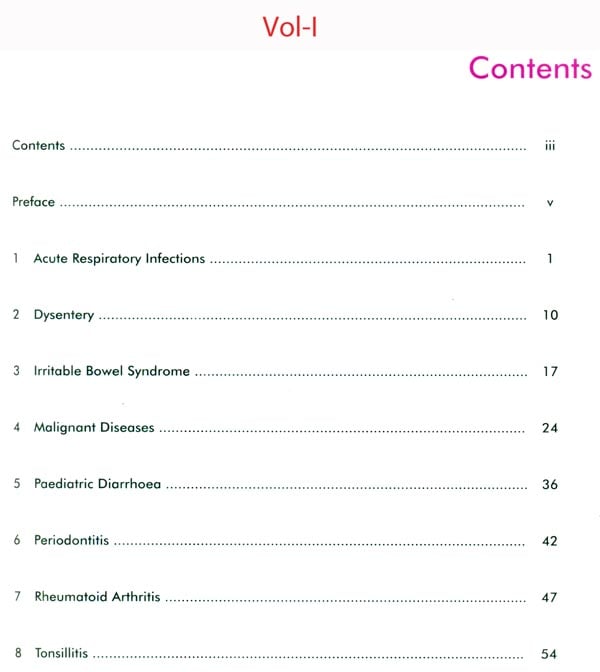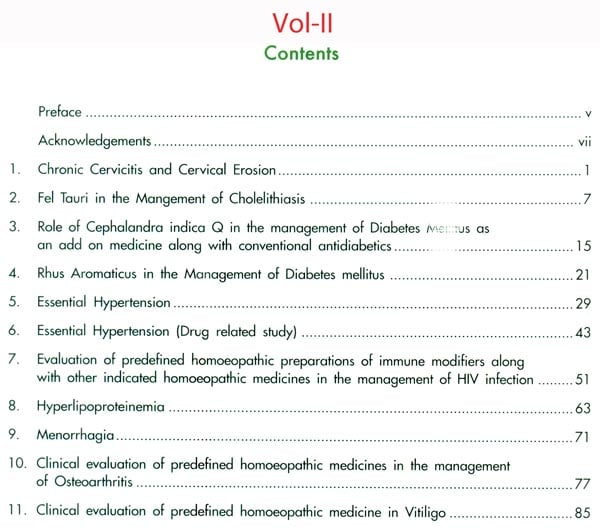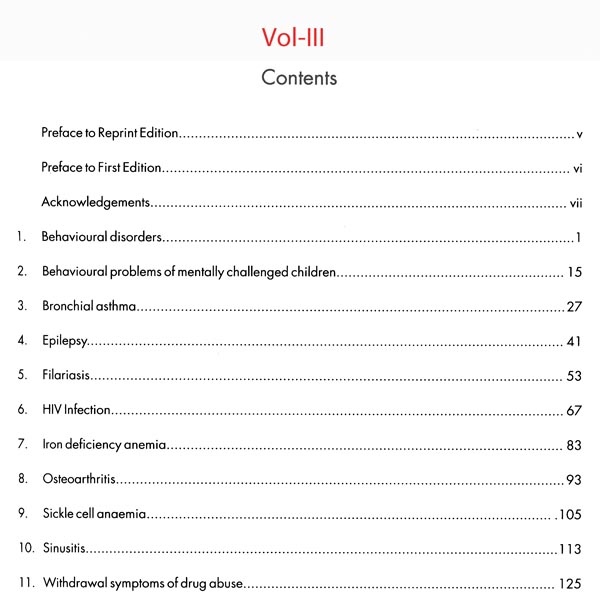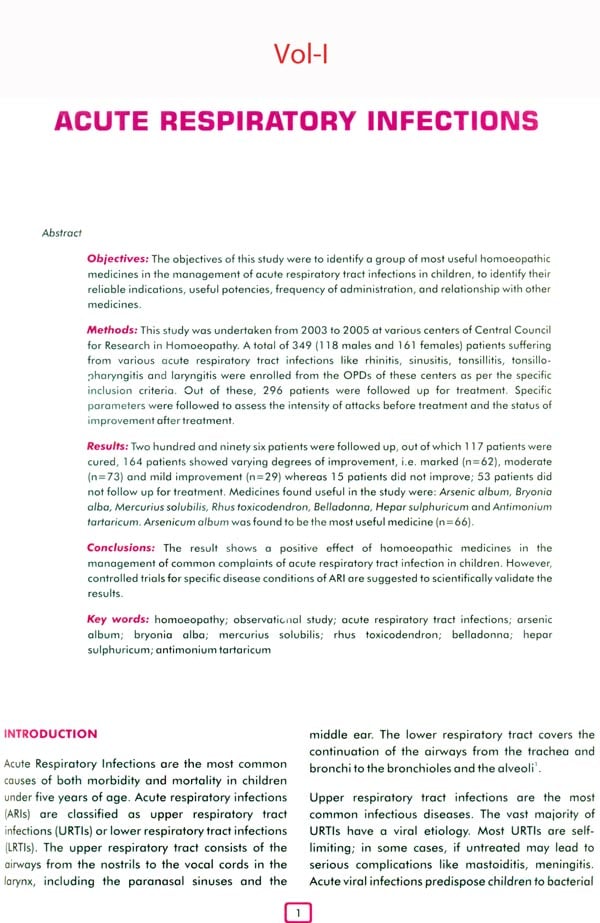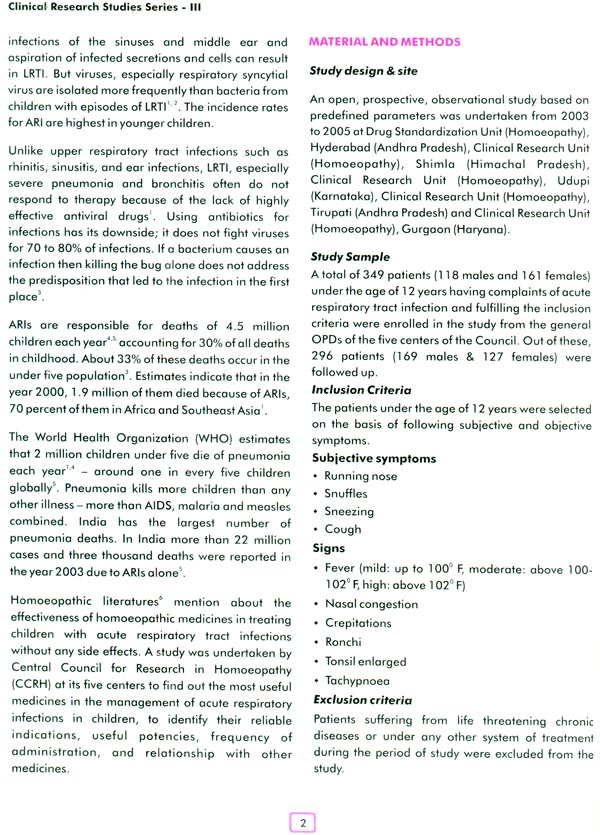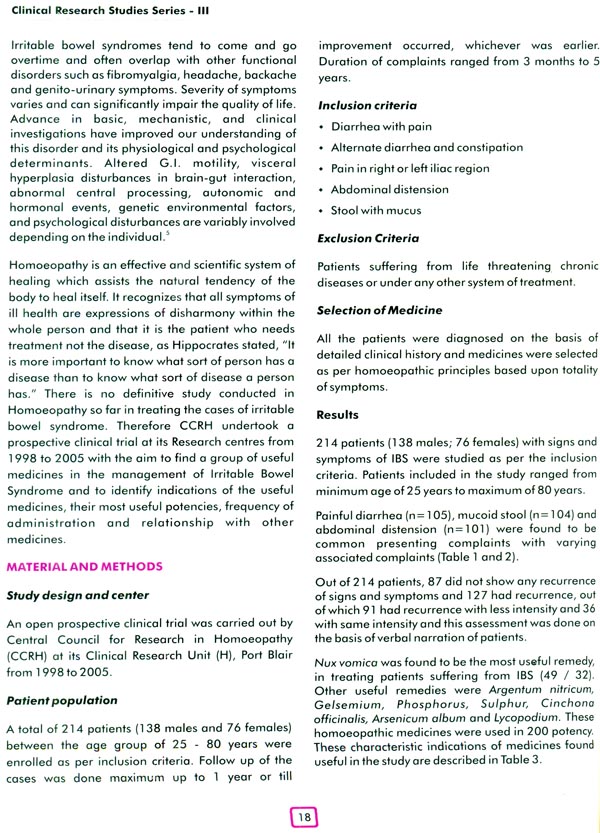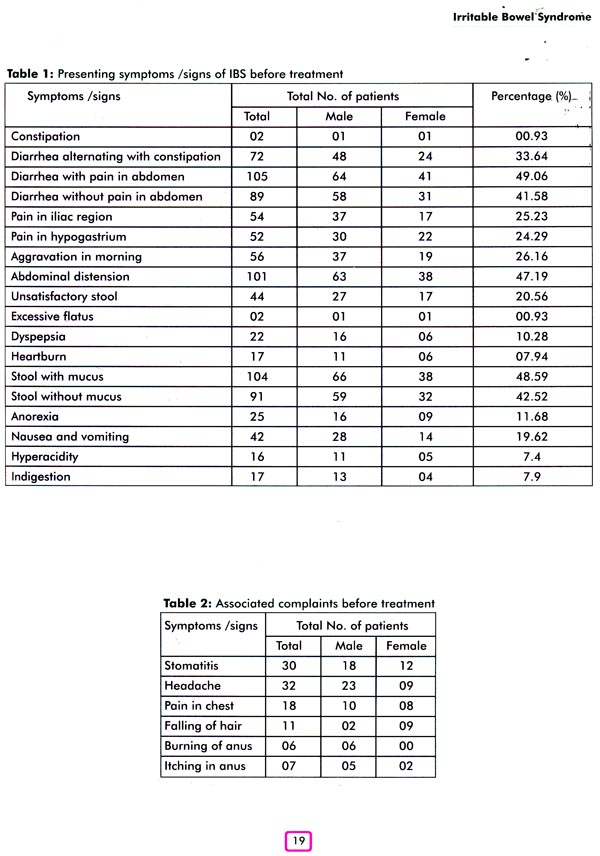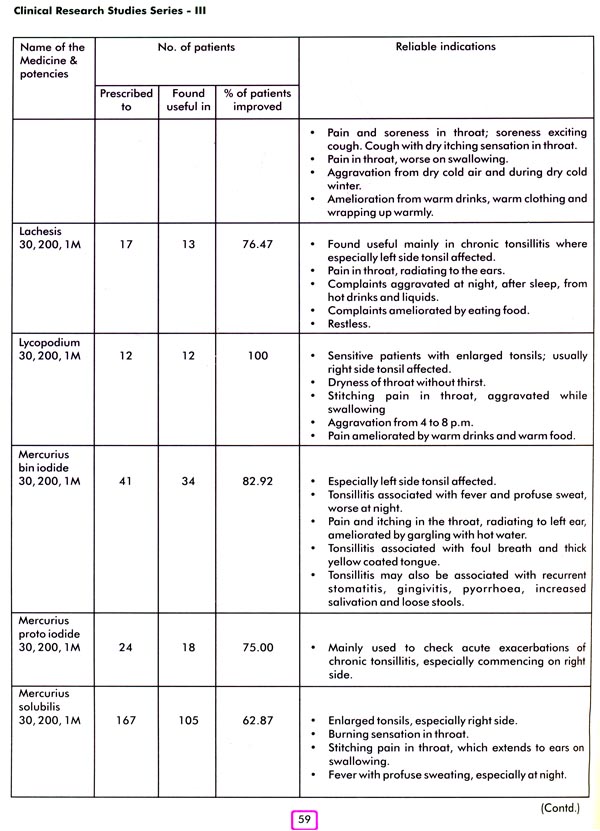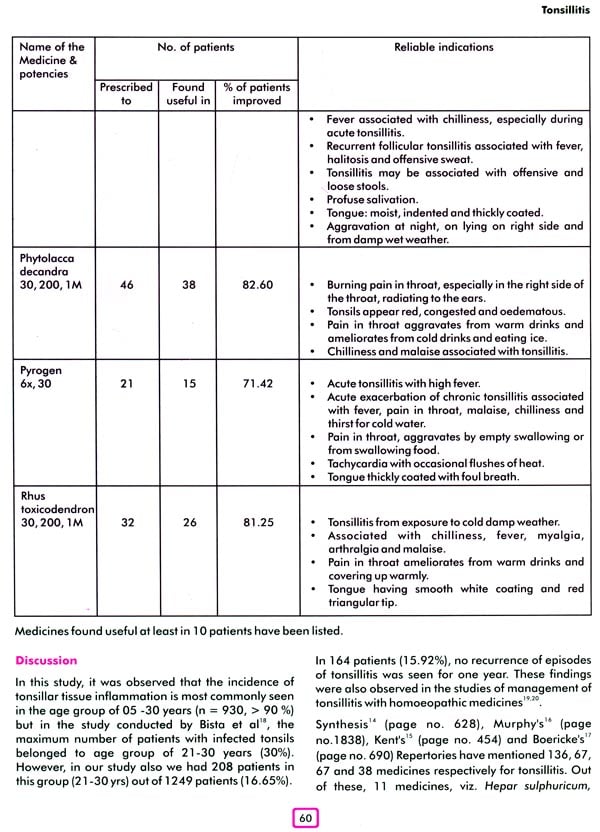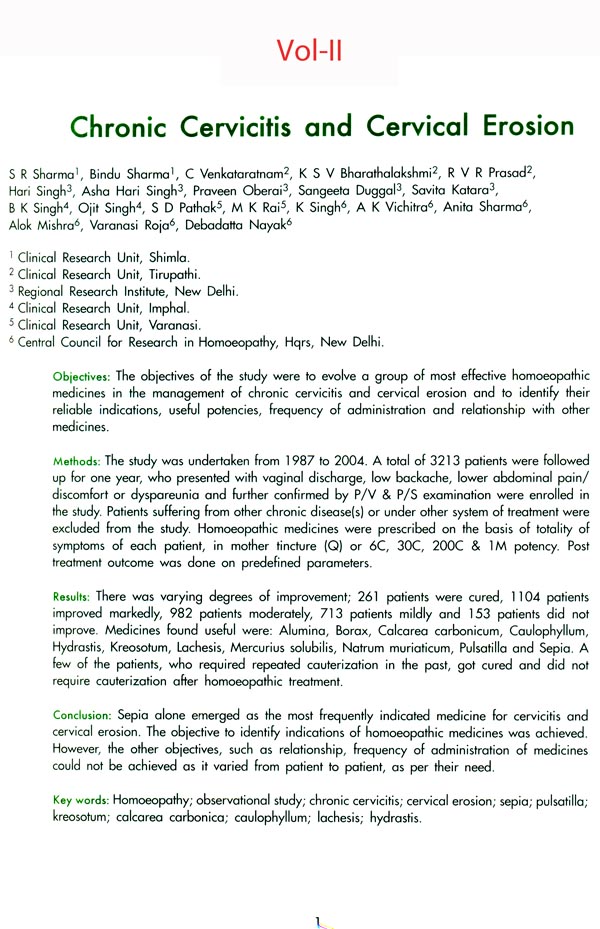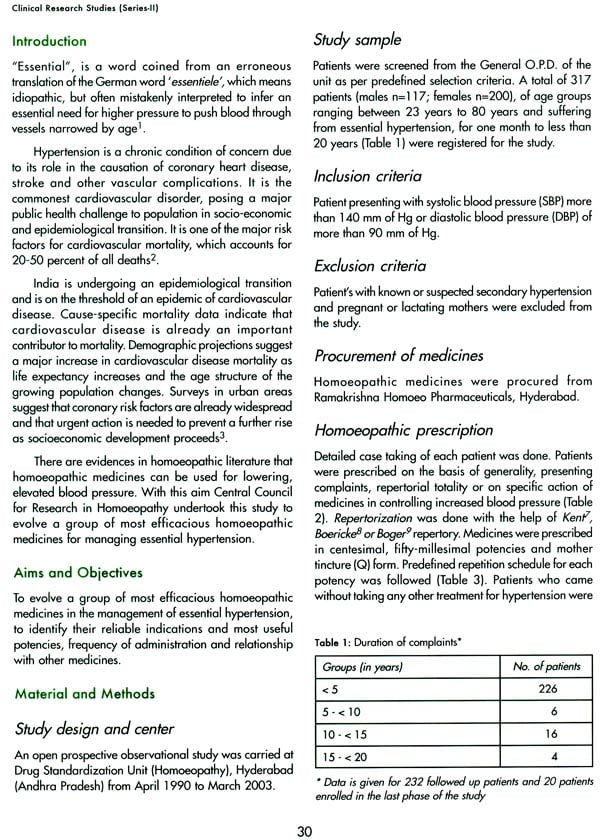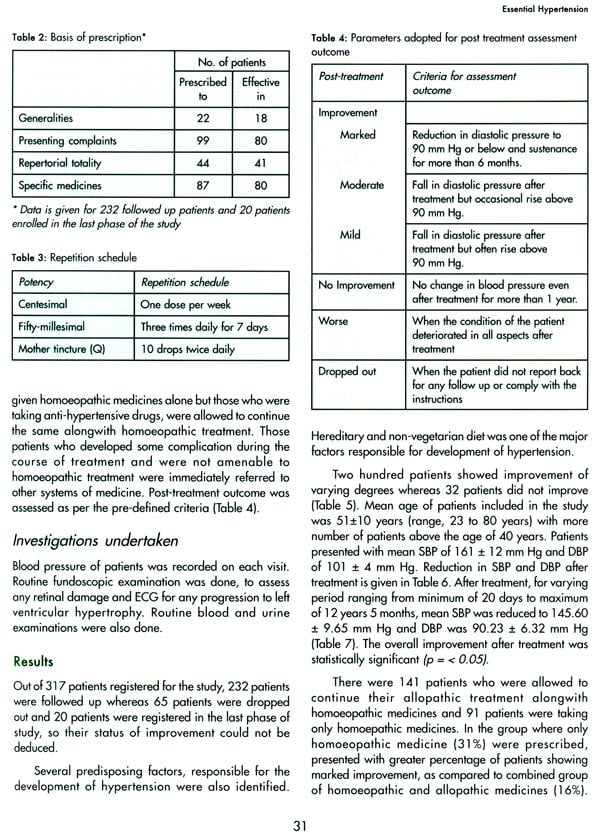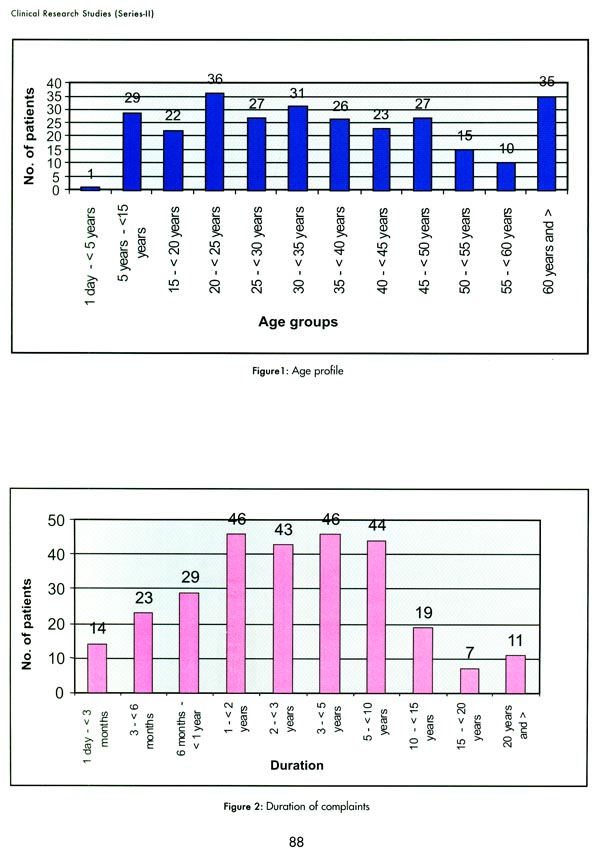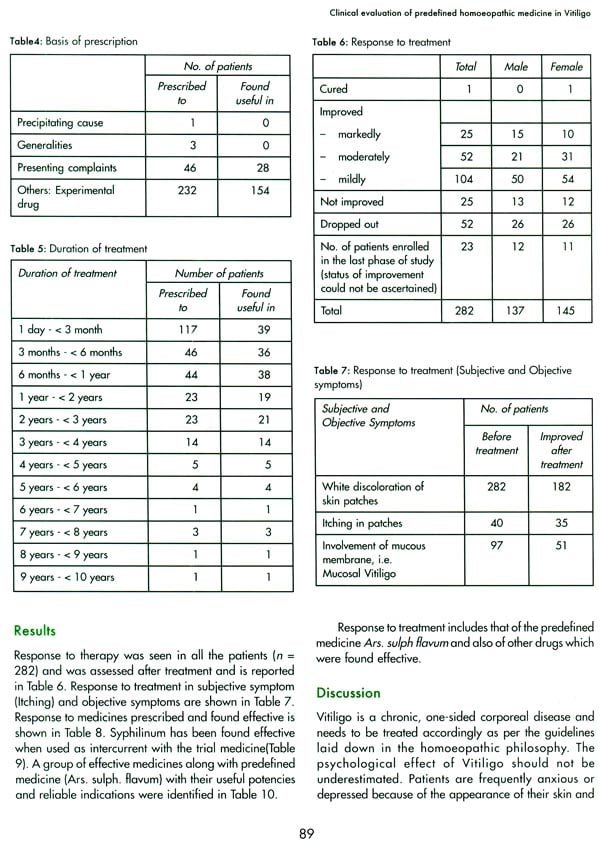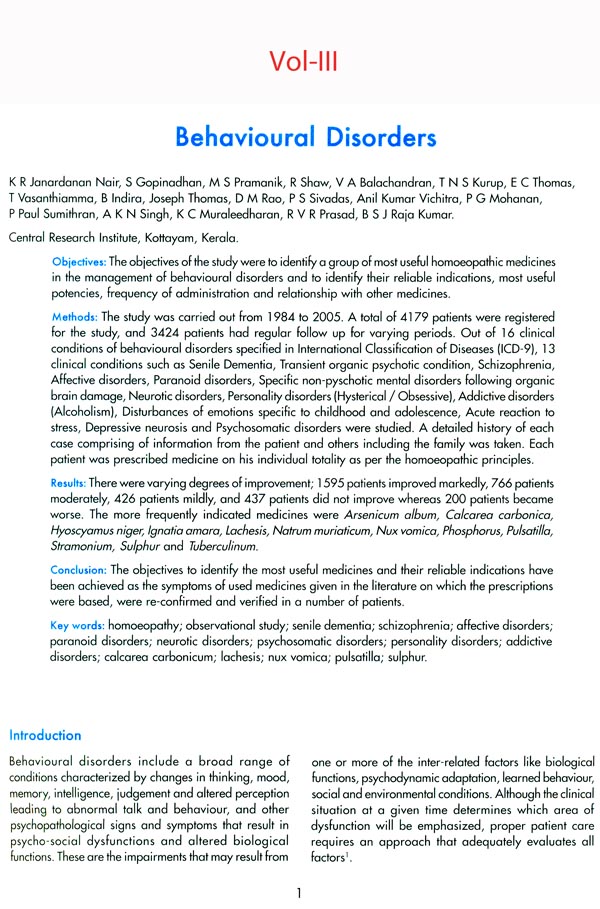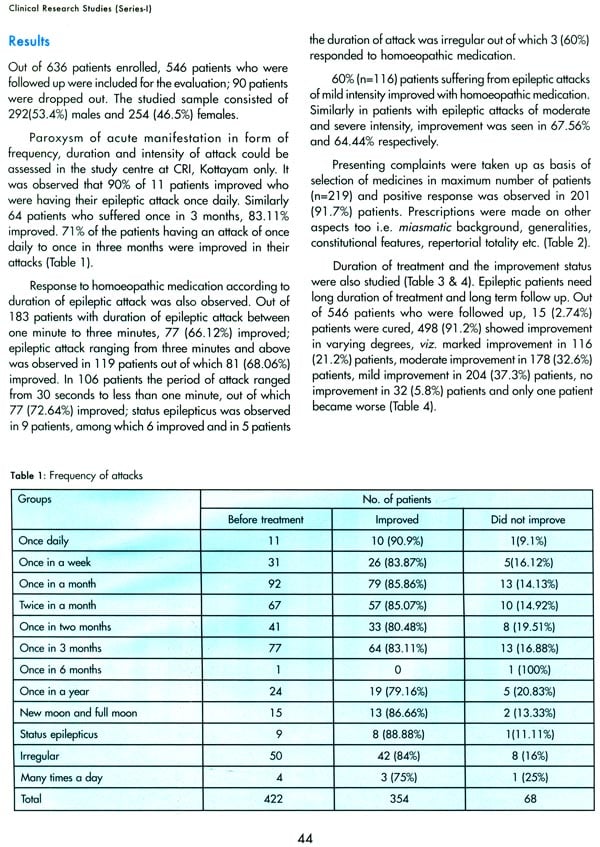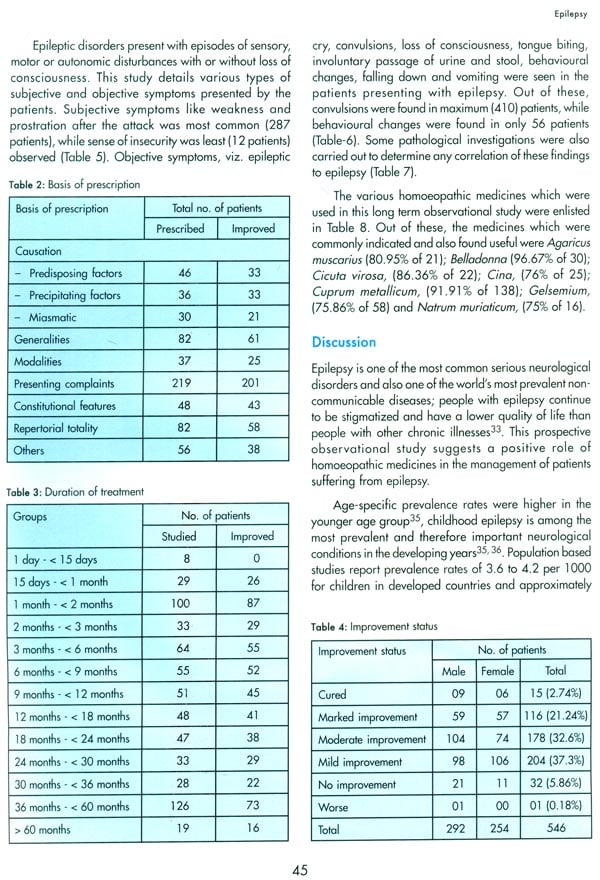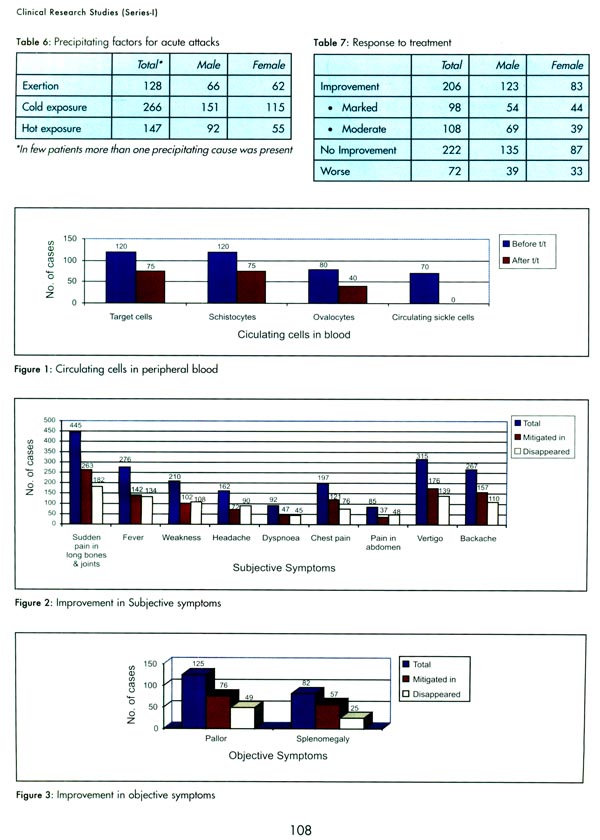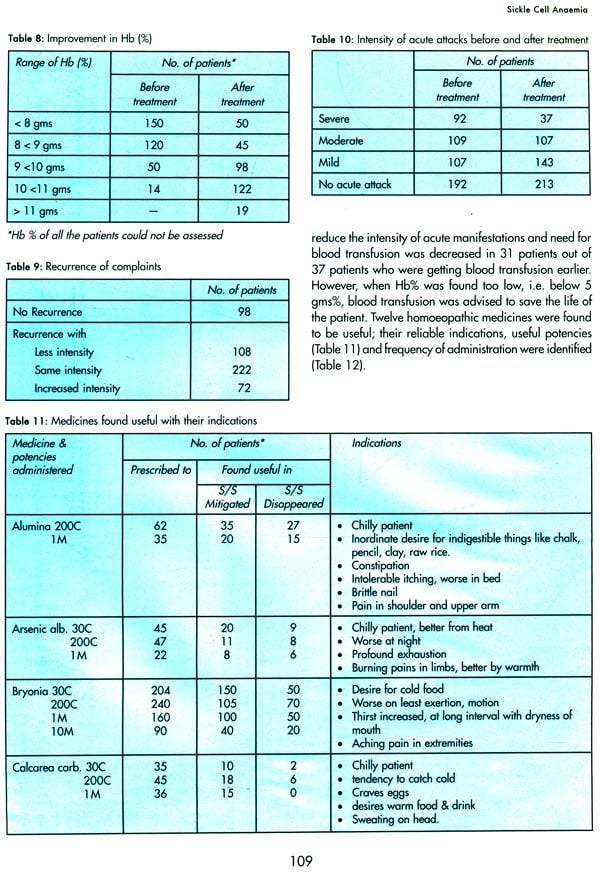
Clinical Research Studies (Set of 3 Volumes)
Book Specification
| Item Code: | MZM603 |
| Publisher: | Central Council for Research in Homoeopathy, New Delhi |
| Language: | English |
| Edition: | 2016 |
| ISBN: | Vol 1- 9789381458372 Vol 2-9788100000114 Vol 3-9788100000115 |
| Pages: | 302 (Throughout Color Illustration) |
| Cover: | PAPERBACK |
| Other Details | 11.00 X 8.50 inch |
| Weight | 1.50 kg |
Book Description
The Council has been conducting clinical research in Homoeopathy from the time of its foundation, with the aim of evaluating or enhancing the existing knowledge of role of Homoeopathy in treating or managing various diseases. With passage of time, its own perception towards clinical research has changed substantially, which is also reflected in the paradigm shift of the Council from observational studies to evidence-based ones. Many research programmes and protocols have been re-designed to match the scientific standards recognized internationally.
This book is the third one in the series of Clinical Research Studies, the first two being launched by the Council in the years 2008 and 2009. The book is a collection of studies carried out by the Council in the past, to assess the management of the following conditions homeopathically - Acute Respiratory Infections, Dysentery, Irritable Bowel Syndrome, Malignant Diseases, Pediatric Diarrhea, Periodontitis, Rheumatoid Arthritis and Tonsillitis. The purpose of these studies was to identify a group of most useful homoeopathic medicines in treating the above-mentioned conditions and also to ascertain the indications of those medicines. With such information and data, the Series III will be a valuable addition to the pre-existing Series I and II published by the Council.
However, the work of the Council doesn't end here by documenting a few research studies in this book. Contrarily, it only begins from here. The observations and conclusions drawn in the book can never be complete, without further attestation by the clinical practitioners, for whom the book is chiefly targeted. I'm hopeful that the homeopathic profession will be benefited from the contents of the book and will give us feed-back to proceed further in right direction.
Clinical research has always been an important activity ever since the Council was constituted in 1979, as an autonomous organization by the Govt. of India, with a mandate of conducting scientific research in homoeopathy. Council took up long term observation studies in clinical research with limited infrastructure with the prime aim of proving the usefulness of homoeopathic therapy in the management of clinical conditions particularly of chronic nature. Though these studies were not rigorous enough in terms of laboratory or bio-chemical markers but outcomes were assessed primarily upon the improvement in signs and symptoms of the disease. The strength of these studies lies in the fact that it reflects pragmatic settings of day to day homeopathic clinical practice.
An observational study is designed to describe usual medical practice; it is not intended to test an assumption, or to prove equivalence or the superiority of one product over another. Thus the results of the observational studies are always communicable. The clinicians are usually found to be very interested in this type of data. There are two reasons for this. First, they are sensitive to the data relating to their own medical practice and secondly, they are a priory interested in comparing their own studies with that of their fellow clinicians. However, the outcome of the observational studies pave the way for evidence based clinical trials.
Clinical Research Studies Series II includes disease related studies carried out in hypertension (two studies), menorrhagia, cervicitis & cervical erosion, osteoarthritis, hyperlipoproteinemia, vitiligo and drug related studies in HIV infection, cholelithiasis, diabetes mellitus (two studies).
I hope, the results of the studies published in this Clinical Research Studies Series will help in the management of these clinical conditions by the homoeopathic profession. The data of these studies can also be used as a base to carry further researches with the presently available modern scientific tools.
Clinical Research Studies Series -1 is a compendium of research studies prepared by the Council on varied topics such as Behavioral Disorders, Behavioral Problems of Mentally Challenged Children, Bronchial Asthma, Epilepsy, Filariasis, HIV Infection , Iron Deficiency Anemia, Osteoarthritis, Sickle Cell Anemia, Sinusitis and also Withdrawal Symptoms of Drug Abuse.
It was first published in 2008 and was well received by the readers and is in great demand at Arogyas, Workshops and symposia. Though the studies are not so robust but definitely they form a solid foundation on which further Randomized controlled Trial have been designed by the Council.
I am confident that this reprint edition will also enjoy the same popularity as first edition and more people will access this book.
Book's Contents and Sample Pages
